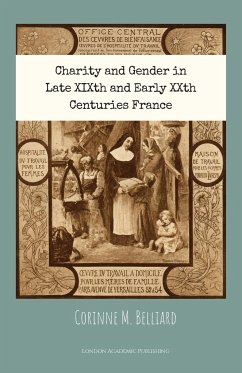In the 19th century France, philanthropy was primarily thought to be a personal virtue. At first, women were not intended to be part of the philanthropic world but, then, men from privileged classes realized that their wives and daughters, symbols of family happiness and ladylike sweetness, were the most suited to smooth off class relationships with the poor ones. They granted them with "special qualities". But the role assigned to women at the Office Central des Oeuvres de Bienfaisance excluded them from the decision-making bodies. They were relegated to the Ladies Auxiliary Committee. As part of the elite, they were only able to act according to how good wives and social events organisers were expected to be. They were embedded in blatant paternalism. Philanthropy did not play an emancipating role for them. On the contrary, it contributed to stress their inferiority. Charitable women eventually came emancipated of their own accord even though no one thought they had any worthwhile qualities.
Hinweis: Dieser Artikel kann nur an eine deutsche Lieferadresse ausgeliefert werden.
Hinweis: Dieser Artikel kann nur an eine deutsche Lieferadresse ausgeliefert werden.








